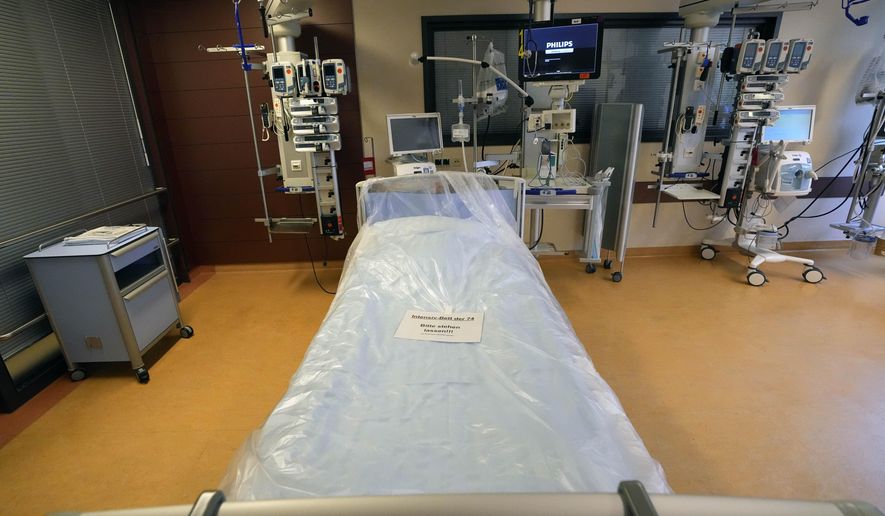Omicron spreads more easily than delta but isn’t as dangerous.
That idea is gaining steam in the scientific community after studies in England, South Africa and Scotland found the omicron variant of the coronavirus causes milder COVID-19 symptoms and is less likely to result in hospitalization.
“Overall, we find evidence of a reduction in the risk of hospitalization for Omicron relative to Delta infections, averaging over all cases in the study period,” says the summary of an analysis from Imperial College London.
The British study said hospital treatment is up to 20% less likely in the general population, including those who have been infected or vaccinated, and 45% less likely to require at least one night in a hospital.
“However, these reductions should be balanced against the much larger risk of infection with Omicron, due to reduction in protection acquired from both vaccination and natural infection,” the report reads.
Across the U.S., fears are rising about the latest variant of the coronavirus. People with omicron infections are filling up hospitals that also are treating patients suffering from the delta strain, and health care workers say they have reached the breaking point again.
The delta variant swept rapidly across the country over the summer, particularly among unvaccinated people, and dashed hopes that the pandemic would soon end.
Omicron is the dominant variant in the U.S. now, just three weeks after the first case was reported.
The Centers for Disease Control and Prevention are urging people who have not been vaccinated to get inoculated as soon as possible, for the vaccinated to get booster shots and for the unvaccinated to wear masks in indoor public places.
The District of Columbia, New York City and Chicago have reported dramatic upticks in COVID-19 cases from the omicron strain as people plan holiday gatherings and airports prepare for millions of travelers to pass through their gates.
Maryland and Virginia also have reported surges in COVID-19 cases.
It adds to fears that another wave of illness from omicron or other variants will overwhelm health care systems across the country.
It also has led to a scramble to find at-home testing kits, which have become scarce. Thousands have lined up this week in the District.
The recent studies offer a glimmer of hope that the omicron variant is not as potent as initially feared.
Researchers at the University of Edinburgh, Scotland, released a study this week that said the “early national data suggest that Omicron is associated with a two-thirds reduction in the risk of COVID-19 hospitalization when compared to Delta.”
The findings showed that a vaccine booster “offers substantial additional protection against the risk of symptomatic COVID-19 for Omicron.” The researchers estimated that 7.6% of COVID-19 cases from omicron were reinfections, compared with 0.7% of infections caused by the delta strain.
A South African study also suggested that the risks of hospitalization and severe COVID-19 are smaller from the omicron variant than from delta.
It showed that people who tested positive for infection from the omicron variant in South Africa from Oct. 1 to Nov. 30 were 80% less likely to be admitted to hospitals than those infected with another variant over the same period.
“Compellingly, together our data really suggest a positive story of a reduced severity of Omicron compared to other variants,” said epidemiologist Cheryl Cohen, a director at the National Institute for Communicable Diseases and one of the study’s authors.
Researchers warn that the findings are preliminary and they will need more time to assess the data.
• This article is based in part on wire service reports.
For more information, visit The Washington Times COVID-19 resource page.
• Seth McLaughlin can be reached at smclaughlin@washingtontimes.com.




Please read our comment policy before commenting.